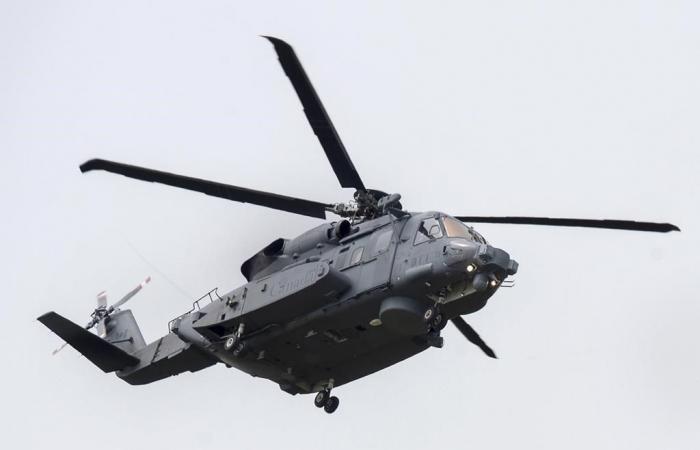OTTAWA — A still-unresolved software issue identified as the primary cause of a fatal military helicopter crash off the coast of Greece in 2020 will eventually be fixed, but at Ottawa’s expense — at a cost and in a time yet. to be determined.
The Department of Defense and the American manufacturer Sikorsky Aircraft said they had agreed on a plan to solve the problem of the autopilot, which allows the computer of the Cyclone CH-148 to take the place of humans in certain situations .
But nearly three years after this technical glitch caused a Cyclone to crash into the Ionian Sea, killing the six Canadian soldiers on board, we still don’t know when this solution will be implemented.
Defense Department spokeswoman Jessica Lamirande said in an email that it was too early to discuss costs and timing.
But one thing has been finalized: Canada will foot the bill.
Lamirande said planned software upgrades are not covered by the Canadian government’s $9 billion contract with Sikorsky in 2004 for the delivery and maintenance of 28 Cyclone helicopters.
“We are committed to continuously improving the safety of our fleets and those who operate them,” said Ms. Lamirande.
Sikorsky spokesman John Dorrian said the company, which has yet to deliver all of the Cyclones planned nearly 20 years after the initial contracts were signed, is now awaiting a new contract for these works.
“Following the award of a contract by Defence, Sikorsky will complete the development, flight testing and downloading of upgrades to the CH-148 fleet,” Dorrian said in an email.
The federal government has been urged to act quickly since the release of two internal military reviews, which identified the autopilot issue as the primary cause of the fatal Cyclone accident on April 29, 2020, off the coast of Greece.
The tragedy claimed the lives of Master Corporal Matthew Cousins, Sub-Lieutenants Abbigail Cowbrough and Matthew Pyke, and Captains Kevin Hagen, Brenden MacDonald and Maxime Miron-Morin. The accident also rocked the country during some of the darkest days of the pandemic.
The pilots are now aware
Staff members repeatedly hinted that the problem was not serious, noting that the Royal Canadian Air Force had developed protocols and procedures to prevent a repeat of this tragedy, training pilots to Cyclone to avoid certain maneuvers.
In a recent interview, Air Force Commander Lt. Gen. Eric Kenny said he was “very confident” of military safety. “Otherwise they wouldn’t be flying this aircraft,” he said.
In recent years, a number of Cyclones have been deployed overseas. Embarked on Canadian military ships, they are mainly used for search and rescue missions, surveillance missions and anti-submarine missions. Lt. Gen. Kenny said these devices performed very well in the field.
Other problems arose, however, including the discovery of tail cracks on almost the entire fleet, due to a design flaw. Sikorsky has agreed to cover the cost of these repairs, but they have not yet been implemented.
Larry McWha, a former Sea King helicopter squadron commander, described the Cyclone fleet autopilot problem as a serious software design flaw, given its potentially fatal consequences.
The fact that the Canadian government is covering the bill for the autopilot repair suggests that Ottawa bears at least partial responsibility “for specifying, testing and approving the original design and control rules that led to the tragic loss of an aircraft and its crew,” Mr. McWha said.
Tags: Ottawa pay fix software responsible helicopter crash


